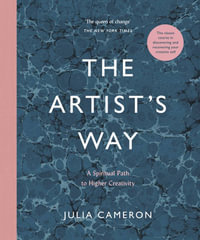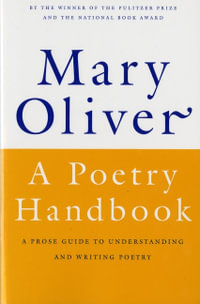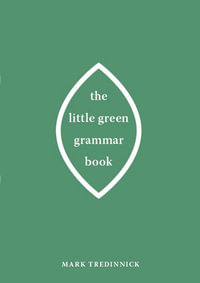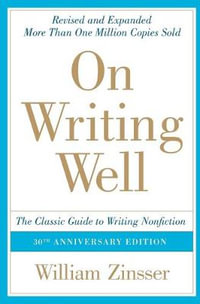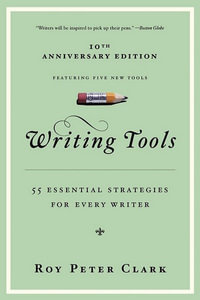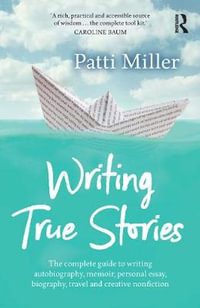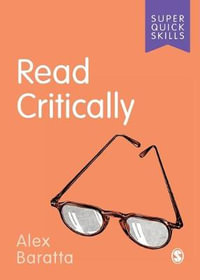'Whether you're writing your first script or your twentieth, this book will help you take your screenplay to the next level. An absorbing read - great examples and explanations from well-known films and television shows, all with practical applications to your own work!'
-Anna Weinstein, Series Editor, PERFORM: Succeeding as a Creative Professional, and Screenwriting Instructor, Auburn University
"David Landau and David Bennett Carren are two professionals who complement the craft of screenwriting with practical experience from the industry trenches. This new book bridges the gap for emerging writers who often find themselves energized to learn beyond formatting basics and struggling to produce quality scripts that hold readers interest. This intermediate level books is ideal for faculty aiming for students to write their first feature length scripts while continuing to develop more imaginative storytelling skills."
- Joseph Giomboni, ABD Screenwriter, Assistant Professor of Communications, Keystone College
"Next Level Screenwriting, by David Landau and David Bennet Carren, is not simply a useful, insightful book. It goes into none of the tropes common to most academic screenwriting works - the three-act structure, the Hero's Journey, the Rule of Three, how to format - though these are all important points to master, to be sure. But this book doesn't bother with all that. This book is a User's Manual.
The focus of this How-To is in the nuts and bolts of crafting a narrative script and getting it into the marketplace. This is done through examples of well-known films and TV shows, analysis of what worked and what didn't, and why; as well as entertaining anecdotes from the writers' own careers in the Industry trenches.
The authors cover a dozen areas useful for a journeyman screenwriter to wrestle with - ways to think about a script, ways to deepen it. Right from the start it embraces the notion of genre, the benefits of choosing a good match for the story being told, in order to take advantage of the genre's established rules - and then how to break those rules when the occasion calls for it.
There's a chapter on how to be conscious of the masks that the characters wear, and how to reveal what's beneath them; a chapter on making good use of the voiceover narrative; a chapter on set-ups, payoffs, and twists. This is all part of the craft and skillset of scriptwriting, as opposed to the "idea" of scriptwriting.
It ends with a few issues often not covered. First, how to write within a budget - which will inevitably require a rewrite if the writer is lucky enough to get a script produced. This leads to the important lesson of rewriting - the numerous drafts most scripts should go through, to really cut away the dross and end up with the best possible screenplay. Rewriting is a critical skill, and the authors do a great service to address it.
And finally, the book looks at how to turn a script into a movie: what the marketplace is all about, how to break into it, or how to avoid it, if that's what you want.
This is an engaging, enlightening book - both personable and professional - and I can't recommend it highly enough for anyone who wants to throw their hat in the ring of fire that is film and television production. Five Stars - and those are Hollywood Stars."
James Kahn - Award-winning feature film producer (The Bet), Emmy-nominated television writer-producer (All My Children, Star Trek: Voyager, Melrose Place), and New York Times #1 Bestselling author (Return of the Jedi).
'Whether you're writing your first script or your twentieth, this book will help you take your screenplay to the next level. An absorbing read - great examples and explanations from well-known films and television shows, all with practical applications to your own work!'
-Anna Weinstein, Series Editor, PERFORM: Succeeding as a Creative Professional, and Screenwriting Instructor, Auburn University
"David Landau and David Bennett Carren are two professionals who complement the craft of screenwriting with practical experience from the industry trenches. This new book bridges the gap for emerging writers who often find themselves energized to learn beyond formatting basics and struggling to produce quality scripts that hold readers interest. This intermediate level books is ideal for faculty aiming for students to write their first feature length scripts while continuing to develop more imaginative storytelling skills."
- Joseph Giomboni, ABD Screenwriter, Assistant Professor of Communications, Keystone College
"Next Level Screenwriting, by David Landau and David Bennet Carren, is not simply a useful, insightful book. It goes into none of the tropes common to most academic screenwriting works - the three-act structure, the Hero's Journey, the Rule of Three, how to format - though these are all important points to master, to be sure. But this book doesn't bother with all that. This book is a User's Manual.
The focus of this How-To is in the nuts and bolts of crafting a narrative script and getting it into the marketplace. This is done through examples of well-known films and TV shows, analysis of what worked and what didn't, and why; as well as entertaining anecdotes from the writers' own careers in the Industry trenches.
The authors cover a dozen areas useful for a journeyman screenwriter to wrestle with - ways to think about a script, ways to deepen it. Right from the start it embraces the notion of genre, the benefits of choosing a good match for the story being told, in order to take advantage of the genre's established rules - and then how to break those rules when the occasion calls for it.
There's a chapter on how to be conscious of the masks that the characters wear, and how to reveal what's beneath them; a chapter on making good use of the voiceover narrative; a chapter on set-ups, payoffs, and twists. This is all part of the craft and skillset of scriptwriting, as opposed to the "idea" of scriptwriting.
It ends with a few issues often not covered. First, how to write within a budget - which will inevitably require a rewrite if the writer is lucky enough to get a script produced. This leads to the important lesson of rewriting - the numerous drafts most scripts should go through, to really cut away the dross and end up with the best possible screenplay. Rewriting is a critical skill, and the authors do a great service to address it.
And finally, the book looks at how to turn a script into a movie: what the marketplace is all about, how to break into it, or how to avoid it, if that's what you want.
This is an engaging, enlightening book - both personable and professional - and I can't recommend it highly enough for anyone who wants to throw their hat in the ring of fire that is film and television production. Five Stars - and those are Hollywood Stars."
James Kahn - Award-winning feature film producer (The Bet), Emmy-nominated television writer-producer (All My Children, Star Trek: Voyager, Melrose Place), and New York Times #1 Bestselling author (Return of the Jedi).



